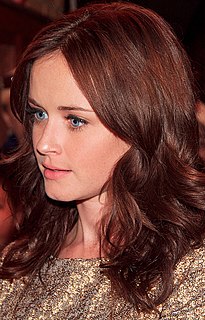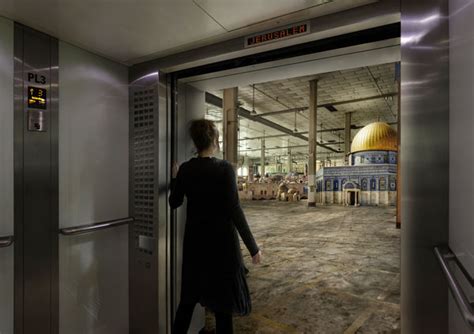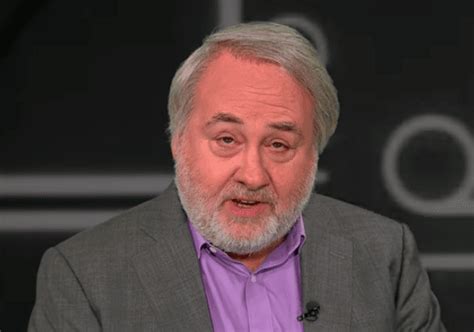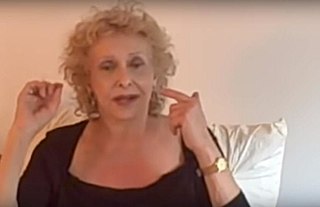Top 84 Dystopian Quotes & Sayings - Page 2
Explore popular Dystopian quotes.
Last updated on November 25, 2024.
You've got to give an audience something to root for. The minute you get into more dystopian shows, where everything's really dark, and no one has any hope, and there's no positive goal we're working toward, it's a bummer. You run out of gas with them. Because you need to know, 'What am I in this for? What am I rooting for?'
'The Handmaid's Tale' takes place in the near future, a dystopian future, and is based on the book by Margaret Atwood. It takes place in what was formerly part of the United States at a period of time when society has been taken over by a totalitarian theocracy. It's about the women who live in subjugation.
I assumed just from being around, all these years, that people would immediately glom on to, Well, it's a departure, and it's a dystopian kind of thing, and that's natural, of course. But it's surprised me - not even surprised me, but it's pleased me - how much people have been responding to the way the book was written.
Before Sept. 11, the idea that Americans would voluntarily agree to live their lives under the gaze of a network of biometric surveillance cameras, peering at them in government buildings, shopping malls, subways and stadiums, would have seemed unthinkable, a dystopian fantasy of a society that had surrendered privacy and anonymity.
When you're a teenager, everything seems like the end of the world, and I don't think that's necessarily a silly thing. You're waking up and becoming aware that the world has problems and those problems affect you, whereas when you're young they don't seem to affect you that much even if you're aware of them. This dystopian trend picks up on that little part of your life where everything feels really extreme and it honors that part of your life and says, "Yeah. It is the end of the world. Look at it."
That's what 'Star Trek' was: We don't know how to make an ideal society, but we're going to portray that, and then we're going to work backward. I think that's why science fiction - despite the dystopian parts - comes out of this super ideal that, eventually, we will get to some better place where we actually live up to our ideals.
When I was a kid growing up in the '80s, the BBC showed those old Buster Crabbe serials like Flash Gordon and Buck Rogers. So instead of ponderous sci-fi or depressing sci-fi or dystopian sci-fi and all the things we're kind of used to, where it's always raining and it's always dark, I thought, "Wouldn't it be nice to do something that was just fun and absolutely nonstop?" Like, I love writing action, and this thing is that. It's all action.
I came across an old story of mine that I'd written a decade ago. The main joke of the story is that a mother is telling her children about how she met their father online. The majority of memories the mother has all have to do with really funny links he sent her, a music download that she loved, etc. - and because of these superficial details she fell in love with the father. Reading it today, it's hardly a dystopian story; it's simply a realistic story about how people actually meet.
Science fiction also provides a sense of nostalgia that is always present when it comes to Palestine, in that whenever we talk about Palestine, it is never in the present, but either remembering a past or imagining a better future. Submitting gritty Middle Eastern politics to high production sci-fi in this manner not only underlines the absurdity of the situation, but brings about a dystopian future scenario.
You won't be reading reviews of the dystopian sci-fi flick Aeon Flux in the papers today because it wasn't screened for the press-and, given that it cost the GDP of a small country and that Charlize Theron and the director, Karyn Kusama, are critics' darlings, this could mean but one thing: A stinker. A weapon of mass destruction. A planet-killer. Folks, I'll never understand studios. Aeon Flux is not that terrible.
'Divergent' was my utopian world. I mean, that wasn't the plan. I never even set out to write dystopian fiction, that's just what I had when I was finished. At the beginning, I was just writing about a place I found interesting and a character with a compelling story, and as I began to build the world, I realized that it was my utopia.
What I find interesting and heartening, though, is that there does seem to be a shift in the subject matter being written about by women that is doing well in the culture. We're seeing more women writing dystopian fiction, more women writing novels set post-apocalyptic settings, subjects and themes that used to be dominated by men.
I haven't written a novel or something that long, because I really am improvising all along and the story is growing new limbs to do what it needs to do. So there's very little planning. There's a little planning where I say, "Well, it looks like I'm going in this direction, ok, good." But there's very little forethought or intellectual justification: "Oh, look, I'm putting in a theme park because that represents dystopian America!"
How do we get utopian thinking in a dystopian world? These days we aren't talking to each other - we're screaming and trying to hit each other over the head with rocks and sticks. A primitive fury has been unleashed by a president who has no culture, who cannot read, and who wants to determine power and aggression.



















